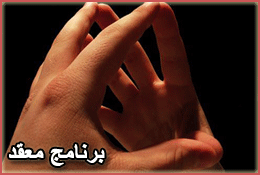-
 Adnanyu saysSat 5th Dec 09@04:28 pmim interested in one thing,it probably doesent have anything to do with this lesson ... why in coloquial people say for example , bhebak , instead of uhibuk , why is that B in front of the word? and with the egyptian , D , or DE?
Adnanyu saysSat 5th Dec 09@04:28 pmim interested in one thing,it probably doesent have anything to do with this lesson ... why in coloquial people say for example , bhebak , instead of uhibuk , why is that B in front of the word? and with the egyptian , D , or DE? -
I think I can answer Adnanyu’s question about “bi-”. “Bi-” is one of several clitic particles that are used as aspectual markers in Arabic dialects. In Egyptian Arabic “bi-” indicates the durative aspect, but in Syrian Arabic it indicates futurity. The Syrian particle “bi-” corresponds to “ha-” in Egyptian Arabic (cf. G. E. Booij et al. (eds.), Morphologie: Ein internationals Handbuch zur Flexion und Wortbildung (Berlin: de Gruyter, 2004), p. 1746).
“Rah” (ﺮﺡ), which is a derivative of “rayih” (going), and which expresses futurity in the first sentence of “Complex program”, belongs to the same grammatical category as “bi-”. It is apparently used in more or less the same way in the Syrian and urban Kuwaiti dialects (cf. Kristen E. Brustad, The Syntax of Spoken Arabic: A Comparative Study of Moroccan, Egyptian, Syrian and Kuwaiti Dialects (Washington: Georgetown University Press, 2000), p. 241). According to Brustad, the future particles “b-” and “rah” are not used interchangeably in Syrian dialects. One particle expresses futurity plus intentionality, while the other one expresses futurity without intentionality. -
Couldn’t have given a better answer than Desmond but just to add/clarify that in a lot of colloquial dialects, when the letter baa ب is added to a present tense verb, it gives a present continuous meaning, so the word be7ebak بحبك can be translated literally to I’m loving you...
A few other examples:
بأتغدى – I’m having lunch
بألعب البلايستشن – I’m playing the playstation
بأدرس في الغرفة – I’m studying in the room -
this is tijo again...from the land of diversity called india....another of my silly questions...the colloqial word bes or bas used in this lesson means but here..isnt it more commonly used for lie "thats enough" or "not more"...and can bikaifak be used as a'ala kaifak..once again..just love you guys...wish i could join your lessons..but unfortunately very far away..your doing a grea tob by connecting people and their languages.in just a month i have improved my arabic A LOT....to all those reading this,please advice this site to all interested...its one of my favorites(im a language freak).i know four languages(i know im showing off).could anyone tell me the word for pharmacist(im doing my bachelors in pharmacy)
-
Hello tijo! Birds of a feather flock together. I’m fascinated by languages, too. There are at least two words for 'pharmacist': 'saydalaaney' (ﺼﻴﺪﻻﻨﻲ) and 'saydaley' (ﺼﻴﺪﻠﻲ).
-
Hi tijo,
It’s wonderful that we’ve all connected here from different parts of the world to learn Arabic. I wanted to help answer your question. I think ‘bas’ is commonly used to mean “That’s enough”. For example, if a child is being naughty and causing a fuss, you can say Bas – بس – Enough!
Or if someone is pouring drink in your glass, you can say bas to also mean enough. Hope this helps
-
Shukran Desmond and Shukran ArabicLover, Just to comment on BAS, it is actually used in both scenarios, when someone is saying (enough/stop) and also it is used to say (but), again to emphasise (bas) is used just in colloquial Arabic and not in fu97a (classical Arabic).
-
شكرا
-
Regarding the Ba prefix to verbs: I've been doing a Syrian dialect course, and it taught that adding the b sound to the front of a verb indicates simple present tense. So, bshoof = I see. Btshoof = you see, etc. And in addition, they also use a3m as a continuous marker and ha as a future tense marker. Not sure if that's peculiar to Syria or if I've got it wrong ... Thanks for all the invaluable lessons!
-
@menion2011, this method is widely used in many dialects
-
I love you guys - sometimes your dialogues make me laugh at loud.
Beginner - Complex program
| December 4th, 2009 | 11 comments |
In today's not so complex lesson we teach you how to describe things or people using uncomplicated vocabulary. The dialogue is very colloquial and the vocabulary very common so you are likely to recognize some of it when listening to "non-classical" Arabic. If you don't listen to this lesson, you could lose out on many useful phrases. La taqooloon maa 7ad'artakum!
 MP3 Download MP3 Download
|
 PDF Transcript PDF Transcript
|
 Audio Transcript Audio Transcript
 Exercise Exercise
|
| Free | Basic | Premium |
|---|
Join the Discussion

Like this on facebook!

Random Word
البريد الالكتروني |
|

Advertisement


